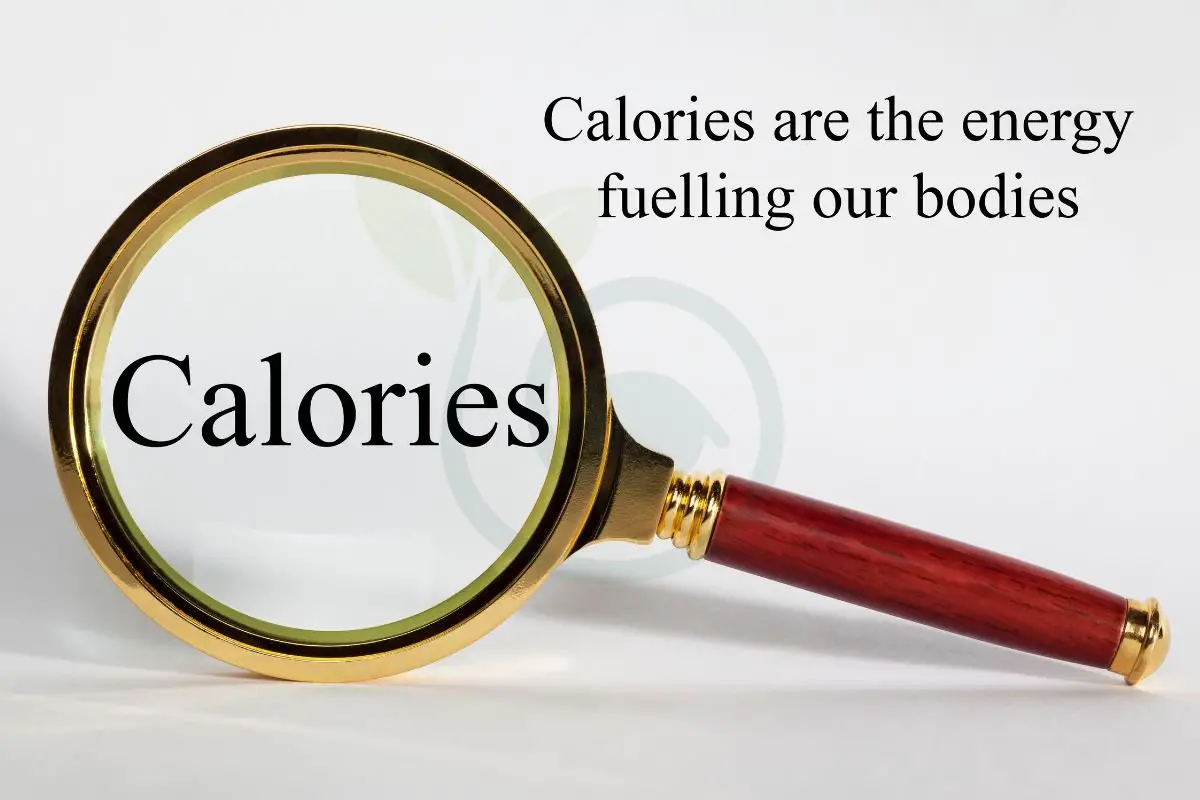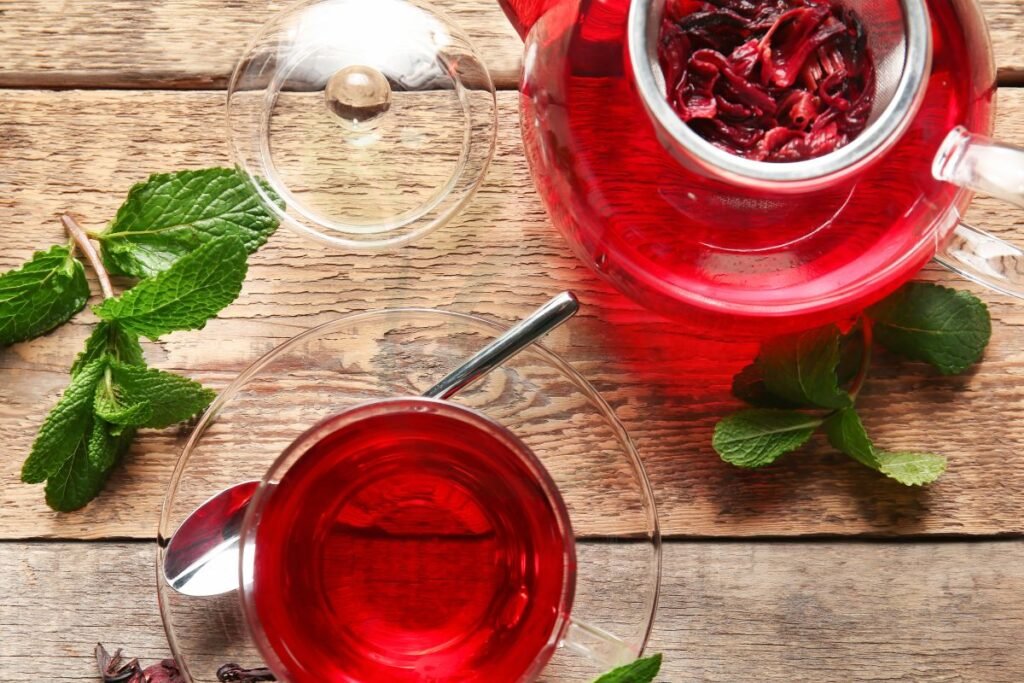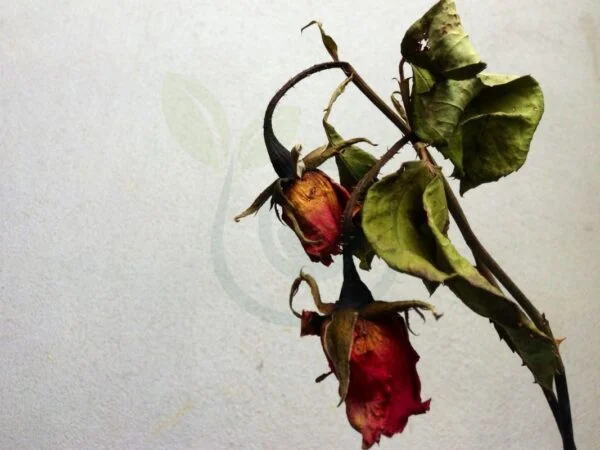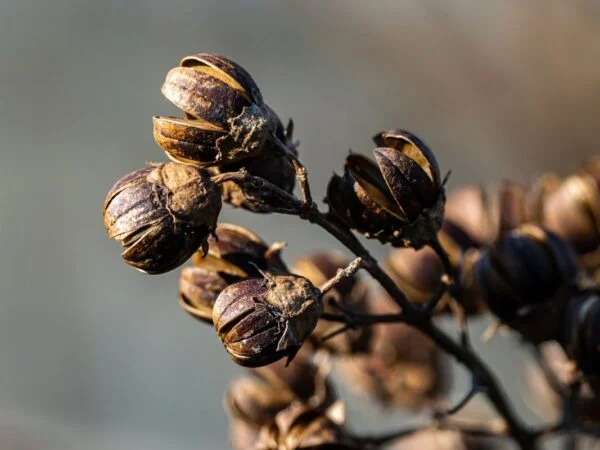
Did you know that a cup of hibiscus tea contains zero calories and many health benefits? Surprising, right? If you're curious about how many calories, total carbs, polyphenols, and health benefits are in hibiscus tea, you've come to the right place for answers.
Key Takeaways
- Watch Your Intake: Be mindful of the calories in hibiscus tea, which can vary based on preparation methods and additives, and enjoy its many health benefits.
- Opt for Low-Calorie Options: Choose unsweetened hibiscus tea to keep the calorie count low and maximize health benefits.
- Compare Wisely: Consider the calorie content of hibiscus tea compared to other beverages like green or black tea for a healthier choice.
- Support Weight Loss: Incorporate hibiscus tea into your diet as a low-calorie, flavorful option that can aid in weight management.
- Prepare Smartly: Follow preparation tips to keep your hibiscus tea low in calories, such as avoiding sweeteners or excessive additives.
- Stay Informed: Be aware of any potential side effects or considerations when consuming hibiscus tea, especially if you have specific health conditions.
Hibiscus Tea Overview
Origin and Popularity
Hibiscus tea traces its historical roots back to ancient Egypt, where it was used for its medicinal properties. The drink's popularity has since spread worldwide, with regions like Africa, the Caribbean, and Central America embracing it for its refreshing taste and health benefits. In various cultures, hibiscus tea holds cultural significance, often being served during special occasions or as a gesture of hospitality. For instance, in Mexico, hibiscus tea is a staple during celebrations and gatherings.
Health Benefits
Consuming hibiscus tea can offer an array of potential health benefits such as aiding in weight management and boosting liver health. Its impact on heart health is particularly noteworthy, as studies suggest that regular consumption may help lower cholesterol levels and reduce the risk of cardiovascular diseases. Hibiscus tea is known for its ability to manage blood pressure levels, making it a popular choice among individuals looking for natural ways to support their heart health.
Brewing Methods
To brew a perfect cup of hibiscus tea, start by bringing water to a boil and adding dried hibiscus flowers. Let it steep for about 5-7 minutes before straining the mixture into a cup. Experiment with different brewing techniques such as cold brewing or combining hibiscus with other herbs for unique flavors. Enhance the flavor profile of hibiscus tea by infusing it with fruits like oranges or berries or adding a touch of honey for sweetness.
Understanding Calories
What Are Calories
Calories are units of energy found in food and beverages that the body uses for various functions. They play a crucial role in determining weight gain or loss based on consumption versus expenditure. Hibiscus tea is low in total carbs, making it a great choice for calorie-conscious individuals.
When compared to sugary drinks like soda, hibiscus tea contains significantly fewer calories per serving. This makes it a healthier option for those looking to reduce their calorie intake. Maintaining a healthy weight involves balancing calorie consumption with physical activity levels, and hibiscus tea can help achieve this balance effectively.
Dietary Needs
Hibiscus tea is rich in antioxidants, vitamins, and minerals, making it a valuable addition to a balanced diet. It can fulfill dietary requirements by providing essential nutrients without adding excessive calories. Compared to high-calorie beverages like fruit juices or energy drinks, hibiscus tea offers a lower-calorie alternative.
Incorporating hibiscus tea into daily meals can enhance overall nutrient intake while keeping calorie intake in check. Its nutritional value surpasses that of many sugary beverages, making it a smart choice for those aiming to improve their diet quality. By replacing high-calorie options with hibiscus tea, individuals can enjoy a flavorful drink without compromising their dietary goals.
Calories in Hibiscus Tea
Plain Hibiscus Tea
Hibiscus tea is a zero-calorie beverage when consumed plain, making it an excellent choice for those watching their calorie intake. The tea boasts a tart and tangy flavor profile, with a hint of cranberry-like taste. Its aroma is refreshing and slightly floral. To enjoy plain hibiscus tea, consider brewing it hot or cold and adding a squeeze of lemon for extra freshness.
Sweetened Variants
When exploring sweetened hibiscus tea options, you'll encounter variations like sugar-sweetened, honey-sweetened, or agave-sweetened teas. These additions can significantly impact the overall calorie content of the beverage. Opting for natural sweeteners like honey or agave can provide a healthier alternative compared to refined sugars. Be mindful of portion sizes and aim for moderation when enjoying sweetened hibiscus teas.
Comparison with Other Teas

Green Tea
Hibiscus tea and green tea differ in nutritional content, with green tea containing catechins that provide antioxidant benefits. Green tea is known for its ability to boost metabolism and aid in weight loss. The flavor of green tea is earthy and slightly bitter, requiring lower brewing temperatures to prevent bitterness.
Black Tea
When comparing hibiscus tea to black tea, black tea typically contains more calories due to the higher sugar content in some varieties. Black tea also contains caffeine, which can vary depending on the type and brewing method. Health benefits of black tea include improved heart health and reduced risk of stroke.
Herbal Teas
Hibiscus tea stands out from other herbal teas with its vibrant color and tangy flavor profile. Herbal teas encompass a wide range of flavors and properties, such as chamomile for relaxation or peppermint for digestion. Each herbal tea offers unique health benefits, from aiding digestion to boosting immunity.
Impact on Weight Loss
Metabolism Boosting
Hibiscus tea may support metabolism by increasing the body's ability to burn calories for energy. This process, known as thermogenesis, can aid in weight management. Metabolism and calorie intake are closely linked, as a higher metabolic rate means the body burns more calories even at rest. Incorporating hibiscus tea into a diet focused on boosting metabolism can potentially enhance weight loss efforts.
- Hibiscus tea supports metabolism through its natural compounds that may stimulate calorie burning.
- Increasing metabolism helps in utilizing calories efficiently, contributing to weight loss goals.
- To boost metabolism with hibiscus tea, consider consuming it before meals to enhance its effects.
Appetite Control
Hibiscus tea has the potential to assist in appetite suppression due to its ability to promote a feeling of fullness. Hydration plays a crucial role in controlling appetite, and hibiscus tea can contribute to overall fluid intake. By using hibiscus tea strategically throughout the day, individuals can manage cravings and prevent overeating.
- Hibiscus tea aids in appetite control by helping individuals feel satisfied and reducing hunger pangs.
- Staying hydrated is essential for regulating appetite and hibiscus tea can be a flavorful way to maintain hydration levels.
- Strategies like having a cup of hibiscus tea between meals can help curb cravings and prevent excessive snacking.
Preparation Tips for Low-Calorie Tea
Sweetener Alternatives
Introducing alternative sweeteners can significantly reduce the calorie content of hibiscus tea. Stevia and monk fruit are excellent natural sweeteners that add sweetness without the extra calories. By using these alternatives, you can enjoy a flavorful cup of hibiscus tea without worrying about added sugars.
Consider how natural sweeteners impact the calorie content of hibiscus tea. Unlike traditional sugar, natural sweeteners contain fewer calories, making them a healthier choice for those looking to cut down on their calorie intake. Opting for natural sweeteners can help maintain a low-calorie count in your hibiscus tea while still satisfying your sweet tooth.
For those seeking healthier sweetener options, look towards agave nectar or honey as they provide a touch of sweetness with minimal impact on the overall calorie count. These alternatives offer a more wholesome way to enjoy your hibiscus tea while keeping the calorie content in check.
Portion Control
Understanding the importance of portion control is crucial when it comes to managing the calorie intake from hibiscus tea. Controlling portion sizes ensures that you consume an appropriate amount of calories per serving, helping you maintain a balanced diet.
The size of your cup and how much hibiscus tea you pour directly impacts the calorie intake. By being mindful of portion sizes, you can prevent overconsumption and unnecessary calorie intake. Opt for smaller cups or mugs to control portions effectively.
To practice effective portion control with hibiscus tea, try measuring out specific quantities rather than eyeballing servings. Using a measuring cup or scale can help you accurately monitor your calorie intake and ensure that you stay within your desired limits. Remember, small changes in portion sizes can make a big difference in reducing overall calorie consumption.
Incorporating Hibiscus Tea into Diet
Ideal Times to Drink
Enjoy hibiscus tea in the morning to kickstart your day with a boost of antioxidants. This refreshing beverage can help improve focus and energy levels for a productive start.
In the afternoon, savor a cup of hibiscus tea as a midday pick-me-up. Its natural sweetness can satisfy cravings while providing a healthy alternative to sugary snacks.
Before bedtime, indulge in a calming cup of hibiscus tea to promote relaxation and aid in a restful night's sleep. The soothing properties can help unwind after a long day.
Recipes for Health
Infuse hibiscus tea into homemade salad dressings for a tangy twist packed with antioxidants and flavor. This simple addition can elevate the nutritional value of your salads.
Experiment with incorporating hibiscus tea into smoothies by blending it with fruits like berries and bananas. This creates a vibrant and nutritious beverage rich in vitamins and minerals.
Try using brewed hibiscus tea as a base for sorbets or popsicles during hot summer days. These frozen treats offer a refreshing way to enjoy the health benefits of hibiscus.
Side Effects and Considerations
Possible Interactions
Hibiscus tea may interact with certain medications, such as antihypertensive drugs, leading to potential complications. It's essential to consult healthcare professionals before consuming hibiscus tea if you are on medication. Precaution is crucial to avoid adverse effects.
When incorporating hibiscus tea into your diet, be mindful of any underlying health conditions you may have. Individuals with low blood pressure should exercise caution as hibiscus tea can further reduce blood pressure levels. Always seek guidance from healthcare providers for personalized advice.
To ensure safety, it's advisable to seek professional advice when considering hibiscus tea consumption, especially if you are pregnant, nursing, or have existing health issues. Healthcare professionals can provide tailored recommendations based on your individual circumstances.
Consumption Limits
Moderation is key when it comes to consuming hibiscus tea. While it offers various health benefits, excessive intake can lead to adverse effects such as digestive issues or potential toxicity due to the presence of certain compounds in high concentrations.
The recommended consumption limits for hibiscus tea vary depending on individual factors like age, overall health status, and existing medical conditions. It's crucial to adhere to these guidelines to prevent any negative consequences associated with overconsumption.
Balanced intake of hibiscus tea is essential for reaping its benefits without experiencing any unwanted side effects. By practicing moderation and being mindful of your consumption levels, you can enjoy the positive effects of hibiscus tea while minimizing the risks associated with excessive intake.
Frequently Asked Questions
Brewing Techniques
Enhance the flavor of hibiscus tea by experimenting with brewing methods like cold brew or sun tea. Try different steeping times to adjust the strength and taste.
Different brewing techniques can impact the nutritional content of hibiscus tea. Longer steeping times may result in a stronger infusion, potentially altering the concentration of nutrients.
For a unique experience, consider adding complementary ingredients like mint or ginger during the brewing process. These additions can elevate the flavor profile of your hibiscus tea.
Storage Tips
To maintain the freshness of hibiscus tea, store it in an airtight container away from direct sunlight and moisture. This helps preserve its flavor and potency over time.
Factors like exposure to air, light, and heat can shorten the shelf life of hibiscus tea. Proper storage in a cool, dark place is essential for longevity.
Invest in quality storage containers that seal tightly to prevent air from entering. Avoid storing hibiscus tea near strong-smelling items as it can absorb odors easily.
Summary
Understanding the calorie content of hibiscus tea is essential for making informed dietary choices. Hibiscus tea is a low-calorie beverage that can be a beneficial addition to your diet, especially if you are looking to manage your weight. By opting for hibiscus tea over high-calorie alternatives, you can enjoy a flavorful drink without compromising your health and fitness goals. Remember to prepare your tea mindfully to maximize its benefits and consider incorporating it into your daily routine for long-term results.
Incorporating hibiscus tea into your diet can be a simple yet impactful way to support your overall well-being. Whether you aim to shed some pounds or maintain a healthy lifestyle, this refreshing beverage can be a valuable ally in your journey. So, why not swap out those sugary drinks for a healthier option like hibiscus tea today? Make a positive change for yourself and savor the benefits of this calorie-conscious choice.
Frequently Asked Questions
How many calories are in hibiscus tea?
Hibiscus tea typically contains 0 calories as it is a naturally calorie-free beverage. However, if sweetened or mixed with other ingredients, the calorie content may vary.
Is hibiscus tea good for weight loss?
Hibiscus tea can support weight loss as part of a balanced diet and healthy lifestyle. It is low in calories, may help boost metabolism, and has diuretic properties that can aid in shedding excess water weight.
Can hibiscus tea have any side effects?
While generally safe, consuming hibiscus tea in large amounts may lead to potential side effects such as upset stomach, dizziness, or hallucinations. Pregnant women should avoid excessive intake due to possible effects on pregnancy.
How should I prepare hibiscus tea for maximum benefits?
To enjoy the full benefits of hibiscus tea, steep dried hibiscus flowers in hot water for about 5-10 minutes to extract antioxidants and flavor. Avoid adding sugar or sweeteners to keep the calorie count low.
Does hibiscus tea have caffeine?
Hibiscus tea is naturally caffeine-free, making it a great alternative to caffeinated beverages. This makes it suitable for those looking to reduce their caffeine intake while still enjoying a flavorful drink.
Image Source: Paid image from CANVA





